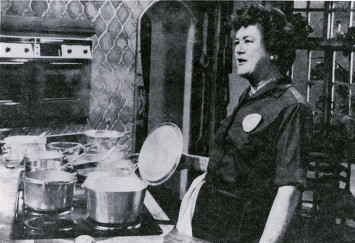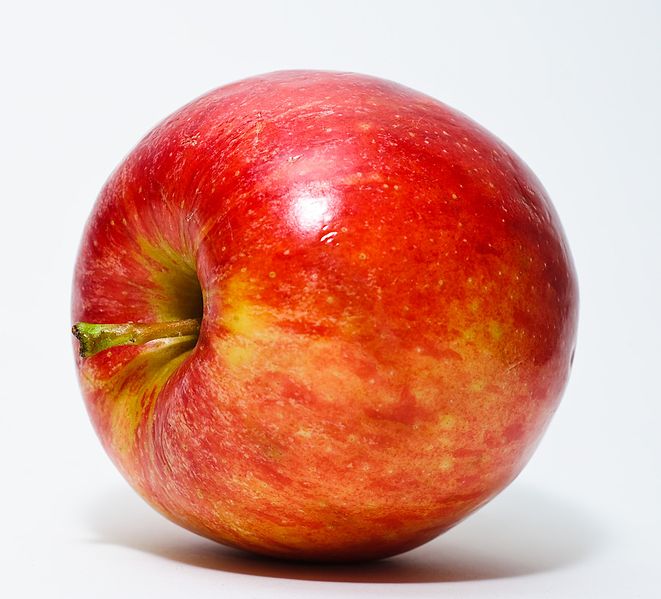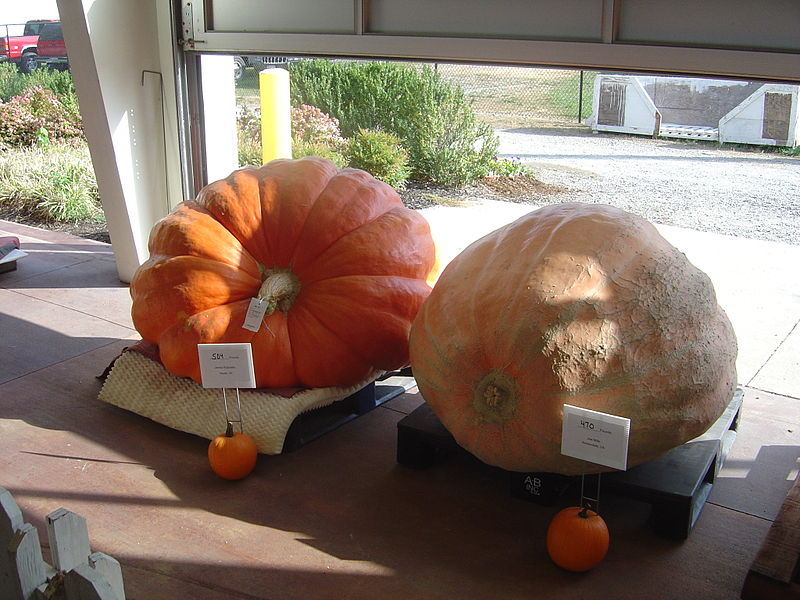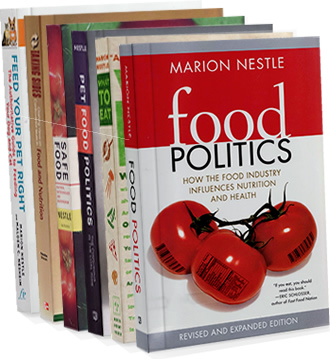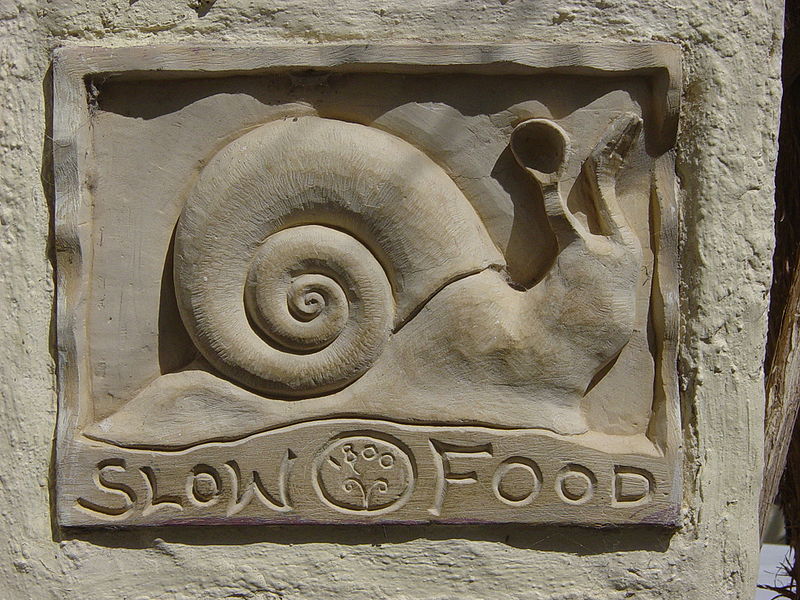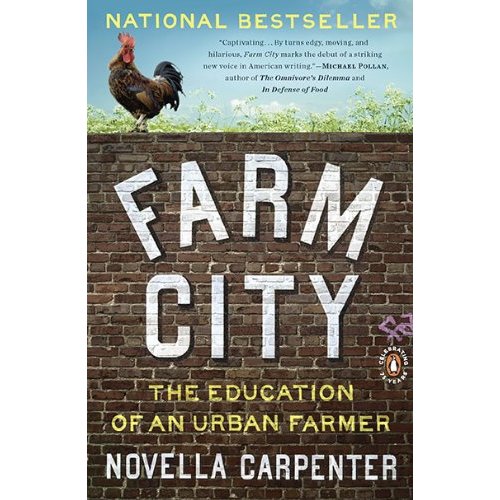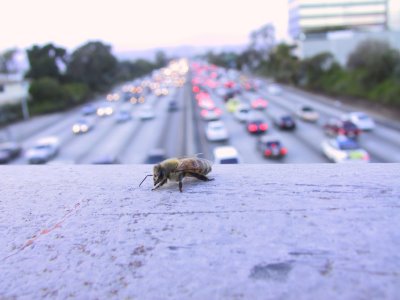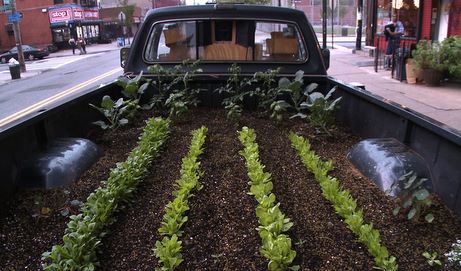Blog
I Love Julia Child
I'm teaching a course on food writing, and Julia Child of course is the hero de jour. Since this is my second time teaching this course and I'm the daughter of a chef, I have something slightly embarrassing to confess: I have never watched The French Chef until now. I'm ashamed, really--how could I have missed out on this pure pleasure for so long? But in a way I also feel so excited, because I get to experience her for the first time, like finding a friend you feel like you've known all along. I showed a short clip of this episode to the students in my food writing class today, where Julia shows us how to make non-traditional eggs. I just LOVE this episode--both for its relevance today, its topic (I love eggs), and its sheer joy. Oh Julia. We miss you. Enjoy her show! [youtube...
read moreFood Writing Exercises: Writing the Senses
"There are three important apples that have changed the world," one of my former students said when Steve Jobs passed away: The one that Eve ate in the Bible, the one that inspired Newton's theory of gravity, and finally the Apple brand that Steve Jobs created. I always loved that insight (which was something she'd heard somewhere, in all honesty, but was great nonetheless). In fact, I'm writing this blog post (and experiencing gravity) on an Apple product right now. Because of its rich presence in literature and history, apples are a great food to use for a sensory writing activity because it's so laden with meaning and metaphor. So, today I used it in our food writing class as a writing prompt, and I thought I'd share the activity here on our website. I bought a bunch of organic Pink Lady apples and gave one to each student after our break. I told them that I was going to guide them through a writing exercise, and that they should write any adjectives, associations or metaphors that came to mind as I directed them to different parts of the apple. So for example, the sense of touch might evoke the adjective "smooth" or "cool," or "smooth as the skin at the temples" or "cool as the hood of a car in the morning before sunrise" or "reminds me of my baby cousin's cheeks." I just encouraged them to write whatever comes to mind as an association with that sensation and aspect of the apple, without judgement or censure. The activity proceeded roughly in this order (I started with touch on accident, but I meant to start with sight first and forgot a few details, so I'll write the "correct" version here): Sight: Look at the apple. Notice the colors, the shape. Pick up the apple and look at the top, where the stem is. Now turn it over and look at the bottom. Write any associations that come to mind. Touch: Now pick up the apple. Feel its weight. How heavy is it? What does it feel like in your palms? What temperature is it? What does the skin feel like when you touch it? (LATER: What does it feel like to bite through the peel and taste the pulp inside? What's the texture like on your tongue?) Smell: Now smell the apple. Smell the skin. Then smell where the stem is and compare it to the bottom of the apple--is the scent the same? Or does one end of the apple smell stronger than the other? How would you describe the smell? What does it remind you of? Sound: What does it sound like to flick the apple with your finger? To scratch the peel with your ear right nearby? (LATER: What does it sound like to take a bite? What does it sound like when everyone else is taking a bite?) Taste: What does the apple taste like? Where do you taste the different flavors on your tongue? Is it sour? Is it only sweet? Does the taste have dimension? Does it remind you of other fruits? How would you describe it to someone? After they took a bite or two, I did the sound and touch sensory questions mentioned in those sections after "LATER". And finally, I...
read morePumpkin Time Lapse Video
Check out this incredible video of the world's largest pumpkin growing into 1487lbs (should we be worried about a pumpkin obesity epidemic now too?). The pumpkin's owner, Ken Desrosiers, set up a camera to take photos of the pumpkin every fifteen minutes...resulting in the super cool and inspiring time-lapse video below: Competitive Entries for largest pumpkin at the State Fair of Virginia, 2007. Photograph taken by Joy...
read moreEdible Education: Food Politics with Marion Nestle
If you're at all involved with the food movement, one question you have to constantly ask yourself is: How can we create equal access to healthy food, so the Slow Food movement doesn't become something only the elite have access to? I have easy access to lots of great food here in North Berkeley, which played a big part in my choice to move here. But at the same time, I'm very aware that the food I have access to is expensive and exclusive, and that the options I choose--even though I try to be frugal--would not be affordable for many families. Not to mention the fact that some families live miles and miles from grocery stores and don't have cars to get there. So where do you shop? At the corner store down the street. Marion Nestle spoke recently at the Edible Education series, and shed a lot of insight on the politics behind the food situation here in the U.S. She specializes in food security issues here in the U.S. and had some very interesting facts to share from her research: There are over 925 million people in chronic hunger, roughly 1/6th of the world population In a similar proportion, 1.3 million New Yorkers food insecure, roughly 1 in 6--almost a half million of those are children The Department of Commerce published recent information showing that while the cost of fresh food is rising steadily, the cost of processed food is lowering steadily--so which do you think you're likely to choose on a budget? Another thing she discussed that interested me was how food companies have increased spending on advertising to children, banking on lifetime brand loyalty, the "pester factor" at the store (you know what I'm talking about, I'm sure), and profits from kid foods. In fact, Frosted Flakes alone spent 20.9 million on kids' advertising, and Fruit Loops spent 20.1 million as well. Some good news on the horizon: In 1994-95, there were 1755 farmer's markets nationwide, but in 2010, there were 6.132--a 16% increase The FTC is trying to create guidelines for childhood obesity by requiring calorie labeling on all foods People are trying to ban toys being sold with fast food meals And here are some things you can do at home: Buy food, not products (an interesting delineation) Eat smaller portions Buy local and sustainably grown food Grow your own food, if possible Cook at home You can check out her speech in its entirety here--I highly recommend...
read moreEdible Education: The Global Food Movement with Carlo Petrini
I'm not sure if you've heard the buzz about the Edible Education course going on here at UC Berkeley, but somehow I got word of it and started attending the classes. I missed seeing one of heroes, Carlo Petrini, speak--and am especially bummed because it would have been a great chance to practice my Italian. The course was put together by Alice Waters of Chez Panisse fame, Niki Henderson from People's Grocery here in Oakland, and Michael Pollan, food journalist extraordinaire. The last two classes I've attended have explored race and economic issues in the food movement, especially connections between obesity, food insecurity, and minorities in the United States. Even though I love eating wholesome, organic food, these are the questions that really interest me: How can we re-shape our food systems here in the U.S. and around the world, to make sure that all people are being fed wholesome food, not just the privileged few? I'll be sharing notes and Youtubes from this course as I continue, but I want to start by asking this: What do you consider the most important issue in the food movement? Food security? Labeling/banning GMOs? Restructuring food systems so all have access to healthy food? Starvation in the third world? There are so many paths into the food conversation--which ones are you passionate...
read moreA Must Read: Farm City, by Novella Carpenter
With the up and coming Truck Farm project, which will soon pick up speed, I couldn't help but read this fabulous book by an Oakland neighbor, Novella Carpenter. It's a memoir, I suppose, but it's almost more of a travel narrative through the jungles of urban farming. Though gardening and beekeeping are no foreign hobbies of Carpenter's, her virgin foray into raising her own meat in the Oakland ghetto has the exotic surprises, disappointments, and delights of a globe-trotting reportage. In Farm City: The Education of an Urban Farmer, Carpenter guides us through the creation of her urban farm in a shady corner of Oakland. Fatal shootings occur down the street, police repeatedly whisk her car-dwelling neighbor away, and overgrown vacant lots surround the small house she rents. But it's the vacant lot and accepted eccentricity that allow the farm to exist in the first place. Carpenter surreptitiously takes over the vacant lot and plants a full-fledged garden, complete with an apiary of bees and a cast of off-beat Oakland neighbors. But what makes the book so interesting--and is truly the crux of the story--are Carpenter's attempts to raise her own meat. It all starts with a mail-order carton of baby turkeys and chicks that Carpenter feeds with kitchen scraps to raise her own turkey for Thanksgiving dinner. The second section of the book details her adventures with rabbits, with a fairly explicit rabbit killing scene--I should just say that it's honest, really--that had me thinking that I could do it myself, just maybe. (This coming from a recent vegetarian of almost fifteen years). But the third and final section entranced and surprised me most: Carpenter decides to raise her own pigs. I loved Carpenter's tales of trying to feed her pigs (in the end she was feeding the two pigs seven twelve-gallon buckets of restaurant food scraps A DAY). But it surprised me because by the time she slaughtered the pigs and harvested the meat for salumi, I was 100% on board with it all. In fact, I couldn't stop thinking about cured pork products and how amazing well-raised and expertly butchered meat can be. And I only started eating pork about a year ago. What I love about Carpenter is the way she wraps her mind around raising her own food. What exactly does it mean to be an urban farmer? Is it possible to live entirely off her land? What responsibility do farmers have when they raise their own meat? Carpenter shows that the relationship between farmer and animal can be a sacred thing if we make it so. When I finished the book, I called my dad, who grew up on a dairy farm in Wyoming. I told him about the book and we talked a little about what it was like to raise pigs and how their pigs would eat corn feed and colostrum from the cows. We laughed a bit about how hip farming has become, but how many people would actually shun the real farming life that my dad knew as a child. But I was grateful that Carpenter's experience gave me a little glimpse into the real world that my dad knew so well. It isn't an easy life, but the rewards are sweet. Check out Novella Carpenter's book here--it's a...
read moreAmericorps for Gardeners–Check It Out!
Are you looking to make a difference in the world? Interested in food issues, gardening, or children's health? If so, then you should TOTALLY check out FoodCorps! FoodCorps is seeking young men and women interested in food, agriculture, community organizing, education, health, and public service to serve in the first class of FoodCorps Members. The one-year term goes from August 15, 2011 and ends August 14, 2012. The goal of the program? To "increase the health and prosperity of vulnerable children, while investing in the next generation of farmers and public health leaders." Sounds awesome, doesn't it? If you're interested, go to this website to learn more information (http://food-corps.org/). And make sure to check out the video...
read moreDonate Your Truck and Make it Famous!
Do you have an older truck that you're trying to sell or get rid of? Consider donating your truck for an awesome cause and launch your truck into fame! Truck Farm (http://truck-farm.com/) is a nonprofit that gets local farmers to find used trucks, fill up the bed with dirt, plant a garden, and drive the Truck Farm around to visit kids in urban areas and teach them about where their food comes from. Truck Farm was started up by Ian Cheney and Curt Ellis, the makers of King Corn, a Peabody-award winning documentary about the production of corn in the U.S. The Truck Farm pilot program started up in Brooklyn, New York last year and had folks like Michael Pollan and Alice Waters working on the project. Now Truck Farm's goal is to launch 25 Truck Farms around the U.S. to continue to spread the word as far and wide as possible. Our Bay Area Truck is already gathering some big sponsors who are super excited about this project. Your truck, once adopted by our Bar Area Truck Farmer, will become a fun and memorable symbol of food education and food justice. It will likely be featured in press releases, regular blog posts, and become loved by kids and adults alike. Doesn't that sound like the best second life you could want for your truck? We think so! If you're interested in donating or partially donating your truck (or would like more info about Truck Farm in general), please contact me (jenniedurant@gmail.com) and let me know as soon as possible. I can't wait to hear from...
read moreBeekeeping in San Francisco
Ever wonder if people keep bees in the city? Heck yeah they do! Everyone's buzzing about urban beekeeping these days, a popular new movement in cities. I found this great documentary about beekeeping in San Francisco--check it out for some inspiration and education. Beekeeping is legal in San Francisco, so make sure you check your city requirements before embarking on your own urban bee adventure. And if it's not legal, try to get involved with your local city council like Denver did (and I think Napa too) and change that! Here's a link to the San Francisco Beekeepers Association, for those who live in the city or are interested in keeping urban bees. Enjoy the...
read moreKickin’ off Truck Farm, Nor Cal
If you're driving around the San Francisco Bay Area and you happen to see a truck rattle by with a garden blooming in the truck bed, try not to let it distract you too much. I wouldn't want you to get into a car accident. That'll just be me and the Nor Cal Truck Farm crew traveling around, heading off to visit some kids. Truck Farm, you ask? Yes, it's exactly what you're thinking: A truck with a garden in the back. Truck Farm is an exciting project dreamed up by my heroes Ian Cheney and Curt Ellis who won the Peabody award in 2007 for their hit documentary, King Corn. It all started in Brooklyn, New York in 2009, when Ian planted a vegetable garden in the bed of his grandfather’s 1986 Dodge pick-up. Ian and Curt took Truck Farm on the road, exhibiting at 40 schools and on the National Mall in DC in order to promote equitable access to healthy food and encourage kids to grow their own vegetables. In concert with a 45 minute documentary about the Truck Farm, me and a fleet of Truck Farmers throughout the U.S. will assemble and plant the trucks and head into our local communities, visiting urban schools, inner-city day camps, downtown street fairs, basketball courts and anywhere else youth congregate. Our goal is to have each truck visit at least 25 groups in low-income, urban areas of their communities throughout the growing season, run interactive workshops and then put these groups into contact with our national partners: the Farm to School Network, the USDA’s People’s Garden Initiative, the Salad Bars to Schools program and the Healthy Schools Campaign. In short--it's going to be amazing. Don't you want to be a part of this? If you're still needing some inspiration, check out the video below. Also, if you are interested in donating a truck, supplies, or volunteering time, or if you'd like to arrange a visit from Truck Farm, please contact Jennie Durant at jenniedurant@gmail.com or on the contact form on this website. You can also keep up with us on our Truck Farm blog posts HERE. And special thanks to Saint Mary's College for your huge support, and Natalie and the Truck Farm team for helping with some of the writing...
read more
